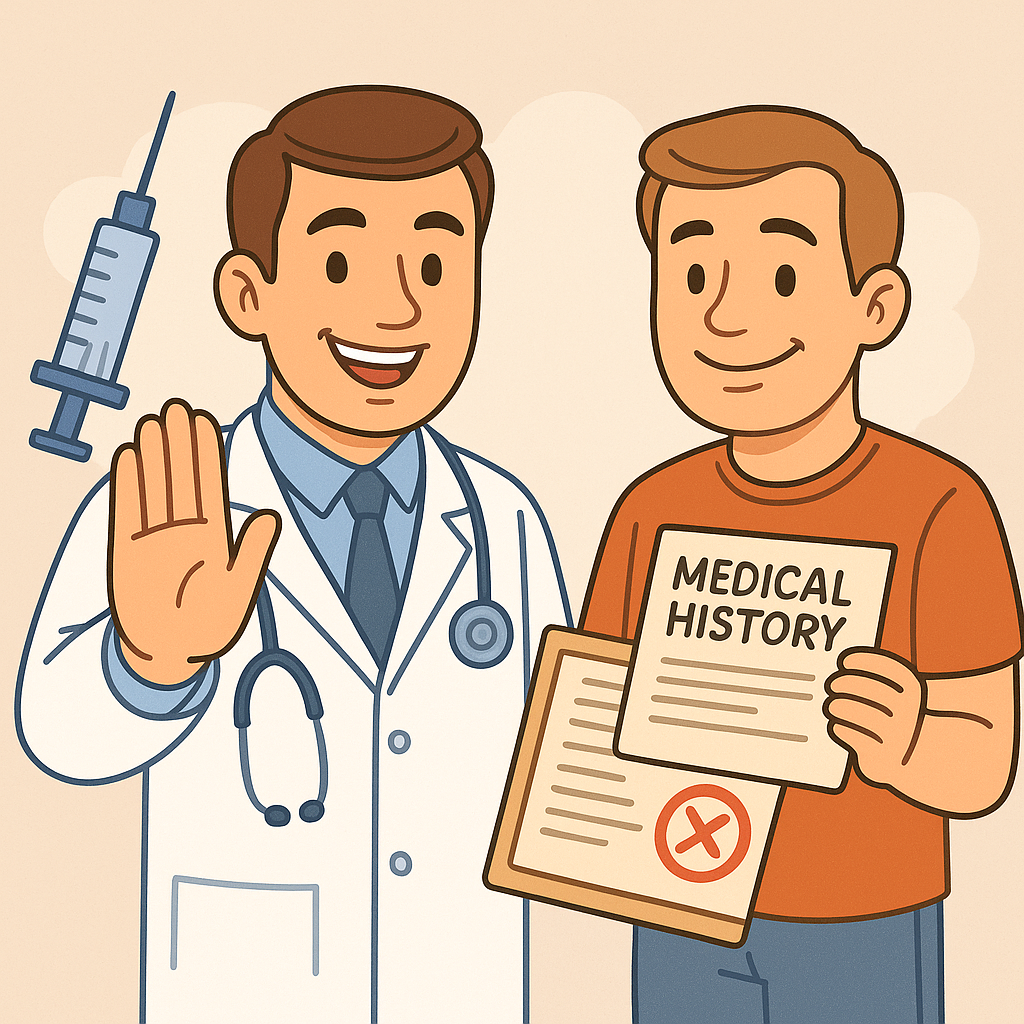Modern vaccines can save lives — but they are not risk-free, especially when used without proper medical oversight. While some side effects are mild, others can be dangerous or even life-threatening in certain people.
That’s why you should never get vaccinated without the approval and supervision of a qualified doctor.
Why Vaccines Can Cause Side Effects
Vaccines work by stimulating your immune system. This is usually safe — but everyone’s body reacts differently. Side effects may depend on:
- Age and overall health
- Allergies or autoimmune conditions
- Other medications you take
- Genetic sensitivity to ingredients
Even modern, well-tested vaccines carry serious risks for people with hidden health issues.
Common Side Effects (Usually Mild)
After vaccination, some people experience:
- Pain at the injection site
- Fever or chills
- Headache or fatigue
- Muscle aches or mild swelling
These are signs that the immune system is responding. They usually disappear in a few days.
When Side Effects Become Dangerous
In rare but real cases, new vaccines have caused:
- Severe allergic reactions (anaphylaxis)
- Myocarditis or pericarditis (inflammation of the heart)
- Neurological symptoms such as dizziness, numbness, or tremors
- Severe autoimmune flare-ups in predisposed individuals
These conditions can be life-threatening without emergency care.
Why You Must Talk to Your Doctor First
Self-vaccination or blindly following online recommendations can put your life at risk. Your doctor will:
- Review your medical history
- Check for risk factors and allergies
- Choose the right vaccine type or dose
- Monitor you for adverse reactions
Even if a vaccine is officially approved, it might not be safe for you personally. Medical guidance is essential.
New Doesn’t Always Mean Safe for Everyone
Some newer vaccines use innovative technologies like mRNA or viral vectors. These can be highly effective — but they also:
- Work differently from traditional vaccines
- May trigger unexpected immune responses
- Still require years of real-world safety data for full understanding
Trust in science does not mean ignoring caution.
Key Terms Explained
- Anaphylaxis – A fast, severe allergic reaction that can be fatal without treatment
- Autoimmune reaction – When your immune system attacks your own body
- mRNA vaccine – A vaccine that teaches your cells to produce a viral protein to trigger immunity
- Contraindication – A medical reason why a treatment should not be used in a specific individual
- Medical clearance – Official approval from a doctor based on your health condition
Final Thoughts
Vaccines are powerful tools — but like any medical intervention, they carry risks. Never treat them as harmless or routine without medical approval. What helps one person can harm another.
Your doctor’s advice is not optional — it’s what could save your life.
When it comes to new vaccines, caution is not fear — it is wisdom.


